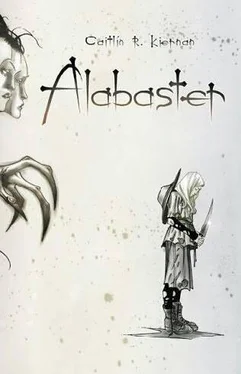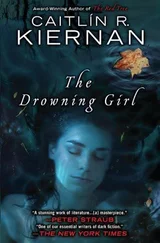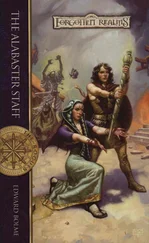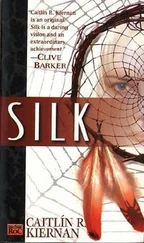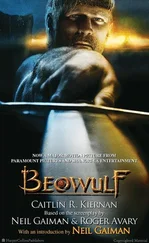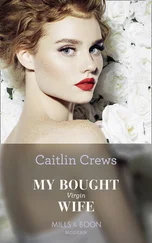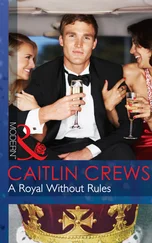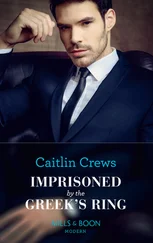The television's on, because she doesn't like the silence, doesn't want to be alone in the motel room with nothing but the sound of her own thoughts and the wind and squawking seagulls and the traffic out on Ariola Drive. Earlier, she turned the volume up loud and left it on a channel that was nothing but news and weather, all day and all night long. Back home, there's no television, and not much of anything else, either.
Julia thinks that maybe she'll use some of the money to buy breakfast at the IHOP a little farther down the strip. She's always wanted to eat breakfast at an IHOP, blueberry pancakes and link sausages and black coffee and orange juice; besides, it isn't enough money for another night in the motel. Not that she needs another night. She's been in Pensacola Beach almost a whole week, a week since the bus ride from Milligan, and she's done almost everything that she came here to do. She's had sex with four men. She's seen two movies in a real theater, Sophie's Choice and Gandhi. She's gotten drunk on frozen strawberry daiquiris, learned to smoke, and she's watched the moon rise and the sun set over the ocean. She bought a yellow Minnie Mouse T-shirt at a souvenir shop and wore it so people might think she'd had enough money to go all the way to Disney World. She hitchhiked back across the three-mile-long Pensacola Bay Bridge and all the way to the zoo in Gulf Breeze where she saw more kinds of animals and birds and snakes than she'd ever really believed existed. She'd bought a red bikini and then spent hours walking up and down the beach, where she found cockles and periwinkle shells and two shark's teeth. She got a sunburn and watched teenagers skateboarding. She'd met a drunk old woman outside a bar who told her stories about hurricanes and her lazy ex-husband who'd turned out to be a homosexual.
Behind her, the angel makes an angry sound like a forest fire, like she's back home and all Shrove Wood is going up in smoke, but Julia keeps her eyes on the pale blue sky and the hungry, wheeling gulls.
"It don't make no difference to me," she tells the angel. She knows it isn't real, that it's only something wrong with her head makes her hear and see angels and worse things than angels, but she also knows it's usually easier if she doesn't ignore them when they speak to her. "You do as you please. I've come this far. I'm not going to chicken out now."
The room fills with a smell like hot asphalt and fresh lemons, but she doesn't look away from the window.
"You're just gonna have to find another crazy girl," Julia tells the angel. "'Cause this one's done with you. You can fly right the fuck back to Heaven or St. Peter or whoever it is you came from and tell them I said to mind their own damn business from here on out."
There's a sudden crackling noise from the television, and Julia almost turns to see.
"You go and break that, I can't afford to pay for it," she says. "Leave me alone."
The angel clacks its teeth together, clack, clack, clack, and the hot asphalt and lemon smell gets worse.
"No," Julia says and reaches for the remote control to turn off the television so that maybe it'll stop making the staticky sound. She presses off, but nothing happens. "Fuck you," she says, and the angel hisses. She prayed that it wouldn't follow her, that maybe it would get lost or distracted somewhere between Milligan and Pensacola, but it didn't. Every single thing she's done the last six days, its been right there behind her. It watched her while she fucked Andrew Leet and those other men. It wandered the theater aisle during Gandhi and Sophie's Choice. It floated above the reptile house at the zoo.
"You ain't been listening to me, but you should. I said you can't have me, and soon enough you'll see that I mean what I'm saying."
The angel screams, and its wings are thunderclaps and St. Elmo's fire trapped there inside the motel room with Julia. But it knows she's not afraid of it anymore, and she knows that it knows. Before she took all the money her mother kept hidden in a Mason jar under the front porch and left the Wood for good, Julia went out to the sandy place where she'd seen the angel the very first time. That was seven years ago, when she was still just a little girl. A wide clearing in the slash pine and briars and Spanish bayonets, and sometimes rattlesnakes and copperheads sunned themselves there. The first time she'd seen the angel, there'd been a huge canebrake rattler stretched out on the hot sand, and the angel had burned it until there was nothing left but charcoal. Before she took the money and set out for Milligan, she went back to the clearing and called the angel and told it that it couldn't have her. She wasn't going to be some sort of saint or nun or something, and she wasn't going to end up like crazy old Miss Sue Anne who lived by herself in a shack on the far side of the deep lake at the end of Wampee Creek. There were crumbling plaster statues stuck up all around the shack, statues of the Virgin Mary and Jesus and St. Giles, the patron saint of people who are afraid of the night. And sometimes Miss Sue Anne rowed out onto the lake in a leaky boat and said prayers and did root magic so all the evil things God had told her lived in the mud at the bottom couldn't come up to the surface.
"What I said, I still mean every goddamn word of it," Julia says, having to raise her voice to be heard above the television and the racket that the angel's making. "You go find someone else, someone who wants whatever it is you're selling, 'cause you can't have me."
And then the angel tells her what happens to suicides, tells her for the hundredth time all about the special corner of Hell reserved for people who are that cowardly, people who think they know better than God when and where and how they ought to die. And when it's finally finished, the angel slips away, taking all the noise and the strange smells with it. And Julia sits on the edge of the bed, biting her lip so she won't start crying, and she tries hard to think about nothing but blueberry pancakes.
IV. The Soldier and the Angel
The wheels turn as the wheels have always turned, the bands of granite and basalt and fire which are this flat, revolving world, and at its dim center the hublands lie, as still as still will ever be. The fixed point about which all creation revolves, the pivot and the axle, the rod and the shaft, and the Dragon-dreaming the coming of the Weaver, the massacre at the Dog's Bridge and the routing of his armies before the Weaver's Seraphim-stirs in his ancient slumber. His dreams spark and drive the gears of half-forgotten machineries buried in the caverns and tunnels far below Kearvan Weal, and all the world shudders and holds its breath.
"Did you hear that, beast? Did you feel it?" Selwith Tinker asks the Seraph, and it watches her with seething amber eyes, but doesn't answer the question or make any other reply. It came awake sometime during the long night, which has now almost ended, but hasn't yet spoken a word. As this thing is her rightful prize, the Keeper of Keys has permitted Selwith to stand vigil in its prison cell, the filthy hole where it was taken once the Glaistig's ministers and conjurors had concluded their examinations and the Seraph was lifted onto a pallet and carried from the noisy, crowded hall. It has been stripped and flogged and chained to the wall of the cell, its wrists and ankles bound in shackles fashioned from some melding of stone and living flesh that the vampire woman has never seen before and doesn't begin to comprehend. Its great tattletale-grey wings are spread out against the black rock and pinned firmly in place with fishhook spikes of iron and blue flame hammered straight through feathers and muscle and bone. The Seraph's toes can almost touch the floor of the cell, where its spilled blood has gathered in a wide and sticky pool; its blood or whatever the Weaver has given it instead of blood, something the color of gully orchids that stinks of sunlight and ammonia.
Читать дальше
